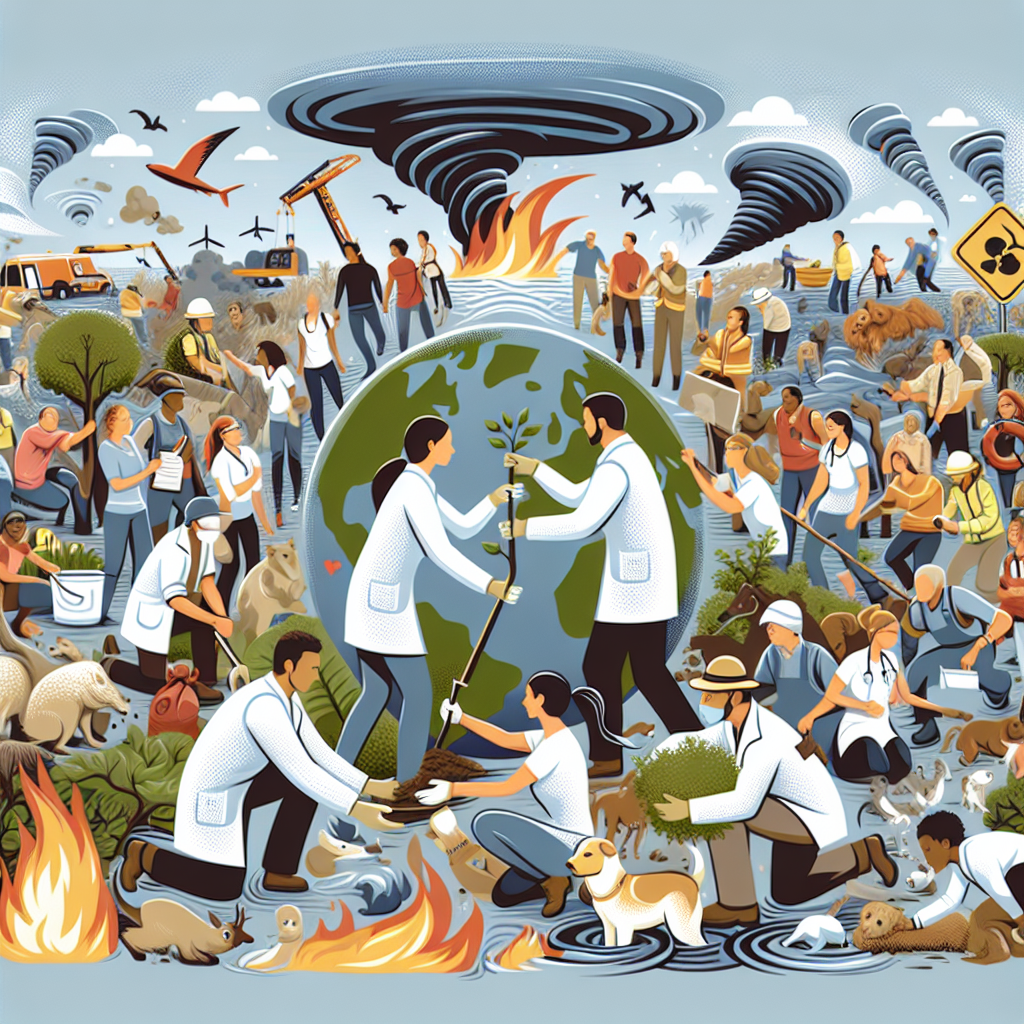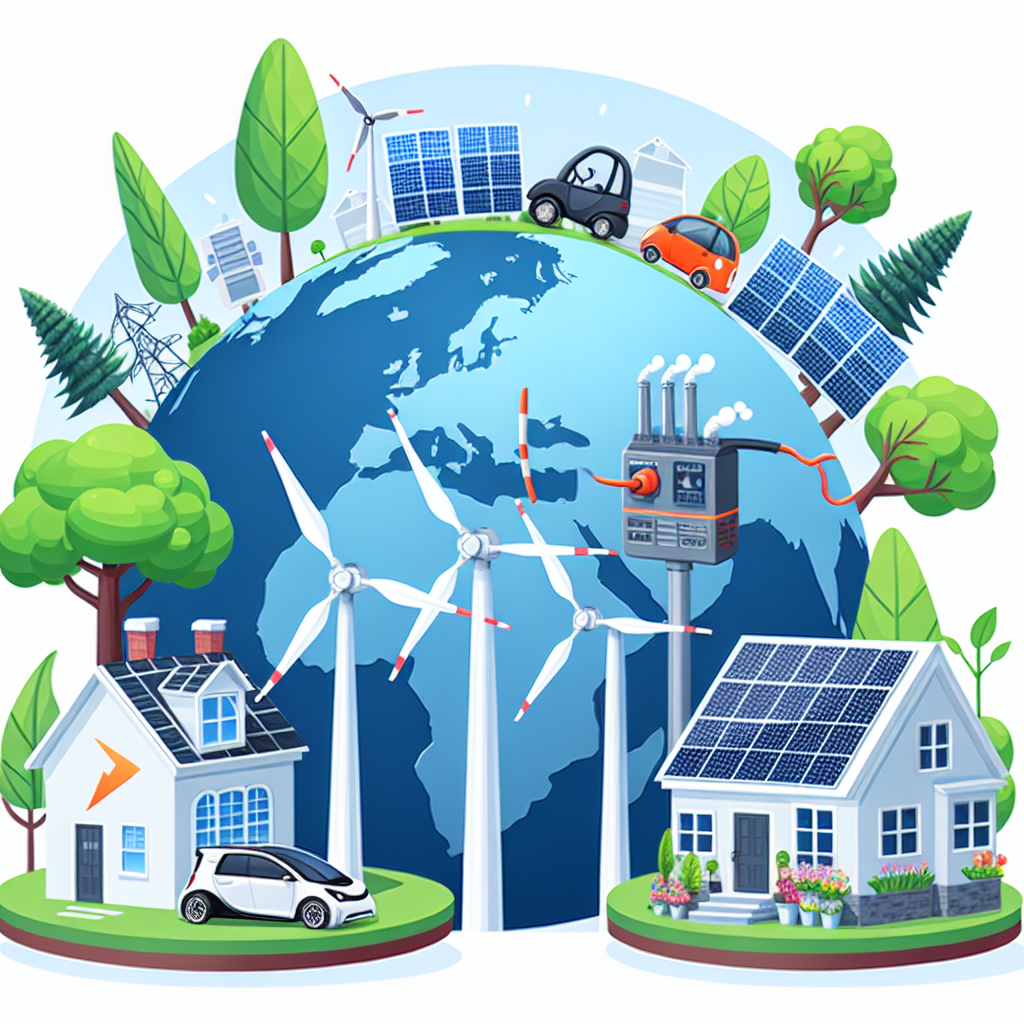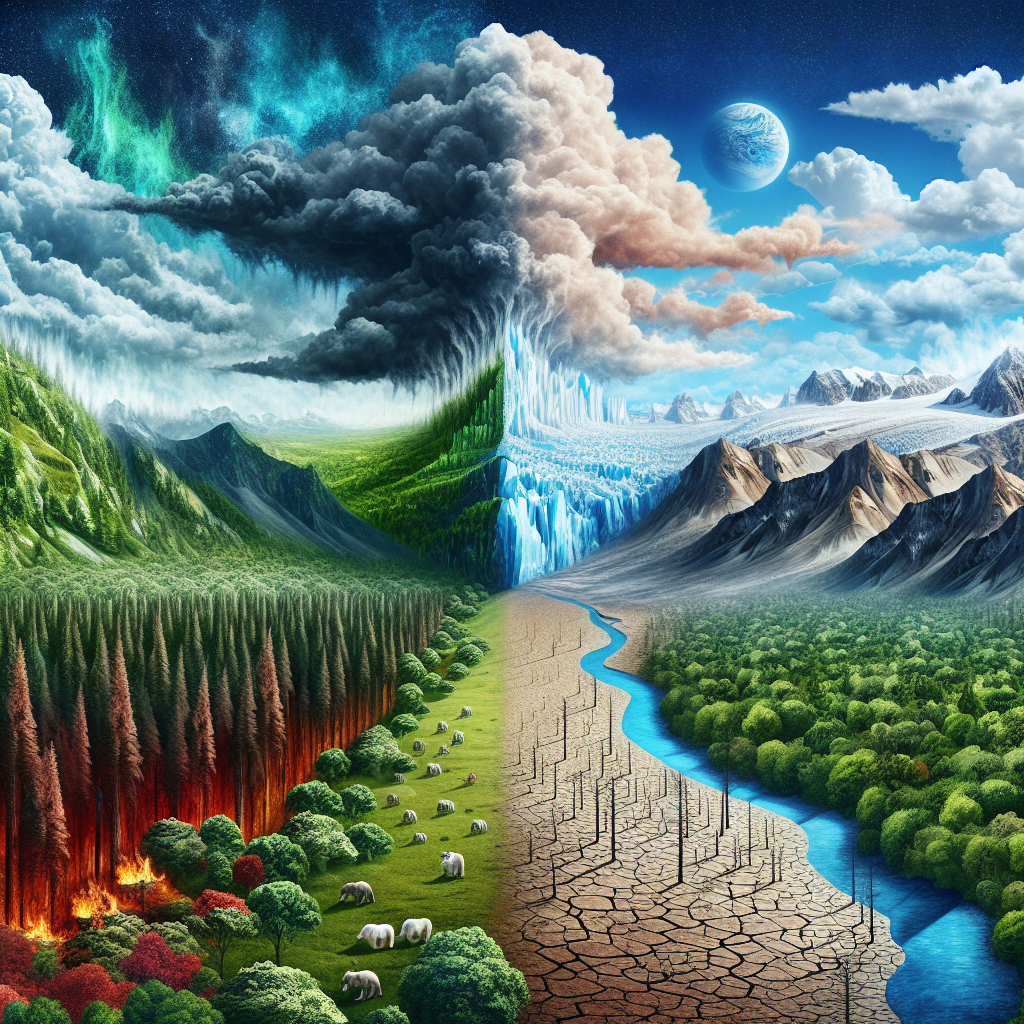
Environmental Impact of Climate Change
Climate change is leading to various environmental changes, such as rising sea levels, extreme weather events, and loss of biodiversity. These changes are disrupting ecosystems and habitats, threatening the survival of many species.
Impact on Ecosystems
Ecosystems are particularly vulnerable to the effects of climate change. As temperatures rise, ecosystems are being forced to adapt or face collapse. This can result in changes to food webs, population dynamics, and the overall functioning of ecosystems.
Global Warming
One of the most significant consequences of climate change is global warming. The increase in greenhouse gases in the atmosphere is leading to a rise in global temperatures, causing widespread impacts on weather patterns, agriculture, and human health.
Addressing the Challenges
To mitigate the environmental impact of climate change, proactive measures need to be taken. This includes reducing greenhouse gas emissions, promoting sustainable practices, and protecting vulnerable ecosystems.
References
For further reading on the topic of climate change and environmental impact, refer to the following sources:
1. IPCC Special Report on Global Warming of 1. 5°C
2. United Nations Environment Programme (UNEP) Climate Change resources
Climate change is a pressing global issue that impacts our planet in profound ways. From rising temperatures to more frequent extreme weather events, the effects of climate change are being felt across the globe. In this blog post, we will explore the causes of climate change, its consequences, and what we can do to mitigate its impact.
One of the primary causes of climate change is the burning of fossil fuels such as coal, oil, and gas. When these fuels are burned, they release carbon dioxide and other greenhouse gases into the atmosphere. These gases trap heat from the sun, leading to a warming of the Earth's surface and atmosphere – a phenomenon known as the greenhouse effect.
The consequences of climate change are far-reaching and can be seen in various aspects of our environment. Glaciers are melting at a rapid pace, leading to rising sea levels and threatening coastal communities. Extreme weather events such as hurricanes, droughts, and wildfires are becoming more frequent and severe, causing devastation and displacing communities.
Furthermore, climate change is also having a significant impact on ecosystems and biodiversity. Many species are facing extinction as their habitats are altered by changing temperature and precipitation patterns. Coral reefs, for example, are bleaching and dying off due to warmer ocean temperatures, leading to a loss of marine biodiversity.
So, what can we do to address the challenges posed by climate change? One of the most important steps we can take is to reduce our carbon footprint. This means cutting down on our use of fossil fuels by using renewable energy sources such as solar, wind, and hydroelectric power. By making small changes in our daily lives, such as using public transportation, reducing energy consumption, and recycling, we can all play a part in mitigating climate change.
In addition to individual actions, governments and policymakers also have a crucial role to play in addressing climate change. Implementing regulations and policies that promote clean energy and sustainable practices can help reduce our reliance on fossil fuels and curb greenhouse gas emissions. International cooperation is also key, as climate change is a global issue that requires a coordinated effort from all countries.
Education and awareness are also essential in the fight against climate change. By informing ourselves and others about the impacts of climate change and the actions we can take to address it, we can collectively work towards a more sustainable future for our planet and future generations.
In conclusion, climate change is a complex and urgent issue that requires action at the individual, community, and global levels. By understanding the causes and consequences of climate change and taking steps to reduce our impact on the environment, we can all contribute to a healthier and more sustainable planet.
.






